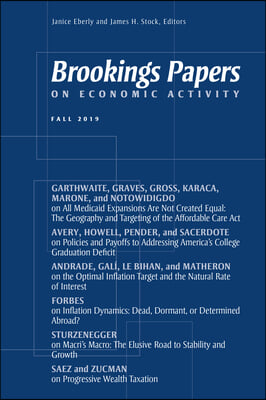美国的高级认知技能沙漠:其可能的原因和影响
IF 2.8
3区 经济学
Q1 ECONOMICS
引用次数: 1
摘要
摘要:本文利用高级认知技能的映射和年龄轨迹来更好地理解为什么这些技能在某些地区比其他地区更普遍。这项研究首先解释了什么是高级认知技能。它提供了一个非专业人士对最近的脑科学的回顾,表明青春期是发展高级认知技能的关键时期。这篇论文考虑了美国各县高级认知技能普及程度差异很大的三个主要原因。是不是儿童早期的因素会产生内源性反应,而这些内源性反应在后来高级认知技能的发展中很重要?是那些在青少年时期影响最大的因素吗?在这个时期,脑科学认为经验会最直接地影响高级认知技能。如果是这样的话,青春期的确是机会的年龄,但也有风险。国家之间的差异是否可以用个人向其他拥有与自己相似的高级认知技能的地区迁移来解释?基于认知技能轨迹、不同年龄的地图和纵向回归的证据表明,这三种解释都在产生高级认知技能普遍存在的区域和不具备高级认知技能的区域方面发挥了作用。本文章由计算机程序翻译,如有差异,请以英文原文为准。
Advanced Cognitive Skill Deserts in the United States: Their Likely Causes and Implications
ABSTRACT:I use mapping and age trajectories of advanced cognitive skills to better understand why these skills are more prevalent in some local areas than in others. The study begins by explaining what advanced cognitive skills are. It offers a nonspecialist’s review of recent brain science that indicates that adolescence is the key period for the development of advanced cognitive skills. The paper considers three main explanations for why the prevalence of advanced cognitive skills varies substantially across US counties. Is it early childhood factors which could generate endogenous responses that are important later when advanced cognitive skills are developing? Is it factors whose influence is greatest during adolescence—the period when brain science argues that experience would most directly affect advanced cognitive skills? If so, adolescence is indeed the age of opportunity but also risk. Is the variation among counties explained by migration of individuals toward areas where other people have advanced cognitive skills similar to their own? Evidence based on cognitive skill trajectories, maps at different ages, and longitudinal regressions suggests that all three of these explanations play a role in generating areas where advanced cognitive skills are prevalent and areas where they are not—advanced cognitive skill deserts.
求助全文
通过发布文献求助,成功后即可免费获取论文全文。
去求助
来源期刊

Brookings Papers on Economic Activity
ECONOMICS-
CiteScore
10.10
自引率
0.00%
发文量
12
期刊介绍:
The Brookings Papers on Economic Activity (BPEA) is a semi-annual academic conference and journal that pairs rigorous research with real-time policy analysis to address the most urgent economic challenges of the day. Working drafts of the papers are presented and discussed at conferences typically held twice each year, and the final versions of the papers and comments along with summaries of the general discussions are published in the journal several months later. The views expressed by the authors, discussants and conference participants in BPEA are strictly those of the authors, discussants and conference participants, and not of the Brookings Institution. As an independent think tank, the Brookings Institution does not take institutional positions on any issue.
 求助内容:
求助内容: 应助结果提醒方式:
应助结果提醒方式:


